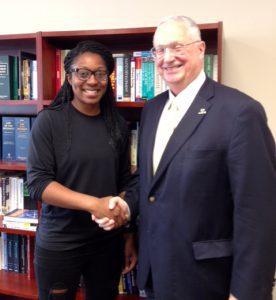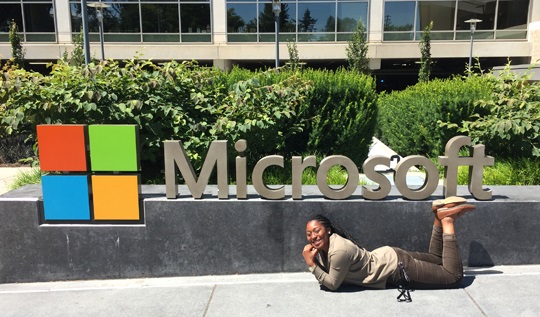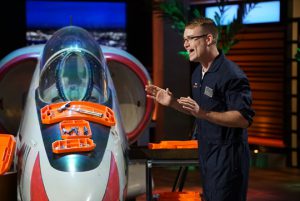“Computers are all around us. Whether you know it or not, they impact our lives every single day,” she said. “I wanted to be a part of that impact and innovation.”
Greer graduated from The University of Toledo with a bachelor of science degree in computer science and engineering with a minor in business administration in May.Shortly after graduation, she accepted a job offer from Microsoft, the sixth largest information technology company in the world by revenue.
“I actually didn’t know anything about computer science or engineering until my senior year of high school. Before that, I was in between interior design and psychology,” Greer said. “My mother convinced me to take a look at engineering because of my love for math. Math has always been my favorite subject, but I never really knew how to make a career out of it. Engineering was the perfect choice for me once I started to learn about it. I chose computer science engineering once I realized how much growth and opportunity there was in that field.”
Once she began her studies at UT, Greer became involved with several student organizations, sports and jobs. She said her four engineering co-ops, three of which are required by the College of Engineering before graduation, especially prepared her for her future working with tech.
“I did two [co-ops] with Lubrizol in Cleveland and two in San Francisco with Visa,” Greer said. “My internships helped me narrow down exactly what I was interested in my field and helped me network with people from all over.

Courtney Greer is congratulated by Bill McCreary, UT vice president and chief information and technology officer, for landing a job at Microsoft.
“My studies at UT taught me how to learn and how to love learning, which is going to be key stepping into such a fast-paced field,” she added. “I also wouldn’t be anywhere without my organization, the National Society of Black Engineers. I was a part of NSBE all five years on campus, and the professional workshops, resumé building, community service, engineering conventions and leadership opportunities I’ve had with my colleagues in the org had a huge impact on where I am today.”Greer seems to have found her groove at Microsoft in Chicago, where she is a partner development manager, working with a team called One Commercial Partner.
“I quickly came to realize that an average day doesn’t exist in my role,” Greer explained. “My team is responsible for creating the growth of Microsoft’s cloud, Azure, in market. My sole responsibility is recruitment. I work within a team of about 20 individuals in different regions and areas of expertise to bring startups, small to medium businesses, and consumers to the cloud.
“Once we are able to get a consumer integrated into Azure, we become a partner with that brand, and, in turn, I become one of their brand champions on Microsoft’s behalf. We want our consumers to get all they can out of Azure; we want them to leverage new technologies relating to Big Data, Artificial Intelligence, Machine Learning, Internet of Things and more. It is so fascinating to see how our consumers are able to leverage our technologies to change the world.”
She helps contact more than 300 accounts in the Midwest region. These accounts vary from manufacturing, financial services, health care and more.
“I need to understand what their company produces and their mission, but also try my best to predict the business and technology needs of each business I interact with. This is why I say no day is average,” Greer said.
“Any day I could be talking to a CEO and CTO of a million-dollar manufacturing company or four college students hoping to create an app that helps hospitals manage patient data. I could be working from home, or I could be working downtown and showing clients one of the Microsoft Technology Centers. I could be traveling to Vegas to a conference to speak to up-and-coming startups about the capabilities of Azure.
“No day is set in stone, which is what I love the most. I love getting to speak to people who have created these wonderful technologies and assisting them to get to the next step.”
Greer is also passionate about encouraging young women and other minorities to pursue their interests in engineering. According to the Congressional Joint Economic Committee, only 14 percent of engineers are women.
“Don’t let failures stop you,” Greer advised. “I’ve read a lot of studies about how insecurities in minorities and women tend to be their downfall. They believe they have to be the best when surrounded by the majority either in school, work or in social interactions ‘or else they’ll think we’re all dumb,’ ‘or else they’ll think I don’t belong.’ It’s called the stereotype threat, and it can be very hurtful to both women and minorities in their studies.
“Don’t fall into that trap. Look at failures as opportunities for learning, no matter where or who you are. We all make mistakes. I learned this insight from a book I read titled ‘Mindset’ by Carol Dweck. I recommend anyone beginning a new phase in her or his life read that book as it is very impactful.”



